
For many students, college is a time when they feel free to explore, travel and mingle with different cultures on a very tight budget.
Whether it’s traveling with friends or studying in another country, sometimes it’s not possible without a credit card. Travel credit cards make your travels profitable and secure.
The right credit card has many bonus features, such as travel expense rewards, fraud protection,
When buying a credit card, you need a credit card that has a good travel rewards program, low fees and special privileges that are suitable for the younger generation.
In this article, you will get all kinds of information related to credit cards, which will help you in choosing a better travel credit card.
Understanding Credit Cards for Students
Student credit cards are usually meant for students who have a small or no credit file. These are just like regular credit cards but have some flexible features so it is important that you consider these credit card Best Credit Cards for Students Who Travel.
which meet the student’s needs and their status Student credit cards usually have no annual charges, and most of them have cash back rewards and benefits, compared to normal consumer cards and student cards are easier to get.
how students can benefit from travel credit cards.

developed society it is dangerous, I mean unsafe to handle money especially while travelling because there are is something about it that one has to take care of.
But if you are careless, then it will result in huge loss. To avoid this problem, travel credit card is often Best Credit Cards for Students Who Travel suggested,
which is really beneficial and if any accident happens to you during the journey, then you are also given insurance through travel credit card.
However the following are features that the students should consider when selecting the credit card for their travel. Here’s a breakdown of the most important ones:
– No Foreign Transaction Fees: This is important because some cards have charges as high as 3% for any transactions done internationally.
– Travel Rewards and Points: Since they are related to the travelling niche, focus on the cards that provide bonuses on anything from flights, to hotels, to dining.
– Sign-Up Bonuses: Some cards provide about several thousand reward points on their anniversary or if the card holder spends a minimum amount within the initial months of card issuance.
– Low APR: Credit card debts especially on the cards that are designed for students are expensive in terms of interest rates. If you are going to save on interest rates, it is recommended to look for card’s offers that have low to 0%* introductory rate.
– Travel Insurance: Initially, several cars offer customers reimbursement in cases of cancellation of a trip,
Best Credit Cards Among Student Friendly and Frequent Flyer Cards
Down below it is possible to find few most widely known student travel credit cards, their main benefits and rewards and how it may be helpful to students.
1. Chase Sapphire Preferred Card
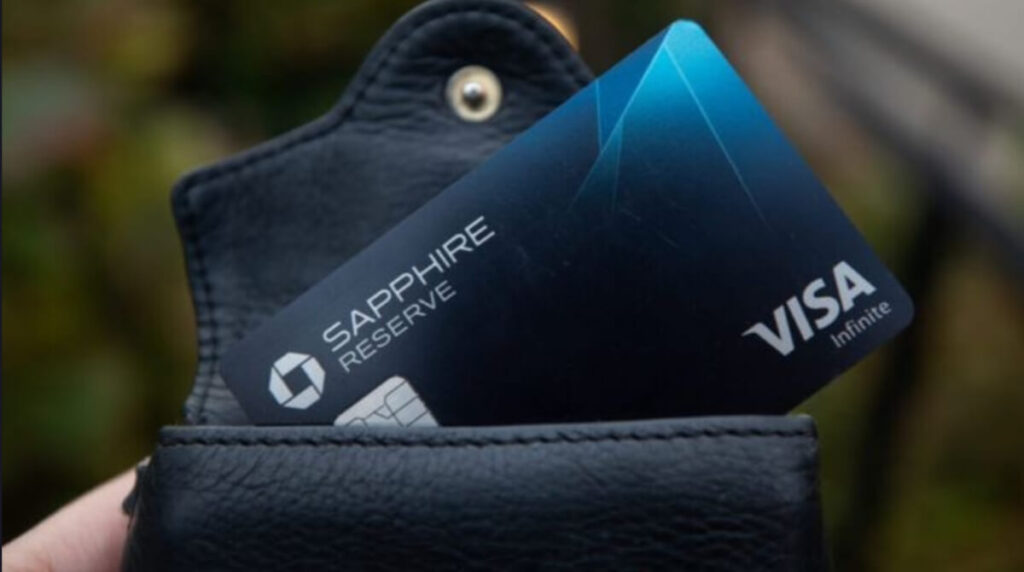
While it is not a student card per se the Chase Sapphire Preferred Card is a good option for the student that intends to spend many miles in the sky.
You can earn 60,000 bonus points after spending $4,000 in the first three months for the card and Bonus: Receive double points for every dollar you spend on travel and at restaurants.
It can be earned through Chase Ultimate Rewards website or can be transferred to other partners which include some of the airline and hotel companies.
It is also noteworthy that there is no fee for any foreign currency transactions in the card and,
in addition to travel accident insurance issued to the cardholders or trip cancellation insurances, as well as delayed baggage insurances.
2. BoA Travel Rewards Credit Card
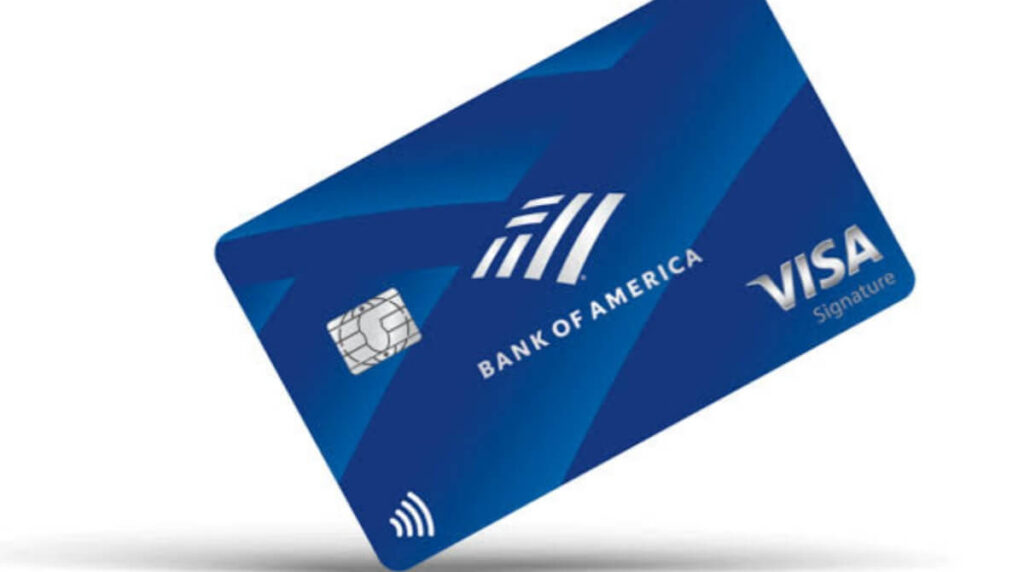
These card is ideal for the student who will get to earn cash back with zero chance to have to pay for the annual fee.
The Bank of America Travel Rewards is a good credit card because it has 1.5 point per dollar on all the purchases charged to the card and no foreign transaction fee.
Points can be earned through paid surveys, completed offers, convincing friends, web searching, etc and the points can be actually used to pay for travelling.
expenses such as plane tickets, accommodations, car rentals and so on, with no minimum cash back required.
The card also has other associated travel incidental benefits such as trip delay and lost luggage this is very helpful to students who are traveling.
3. Venture One Rewards for Students – Capital One
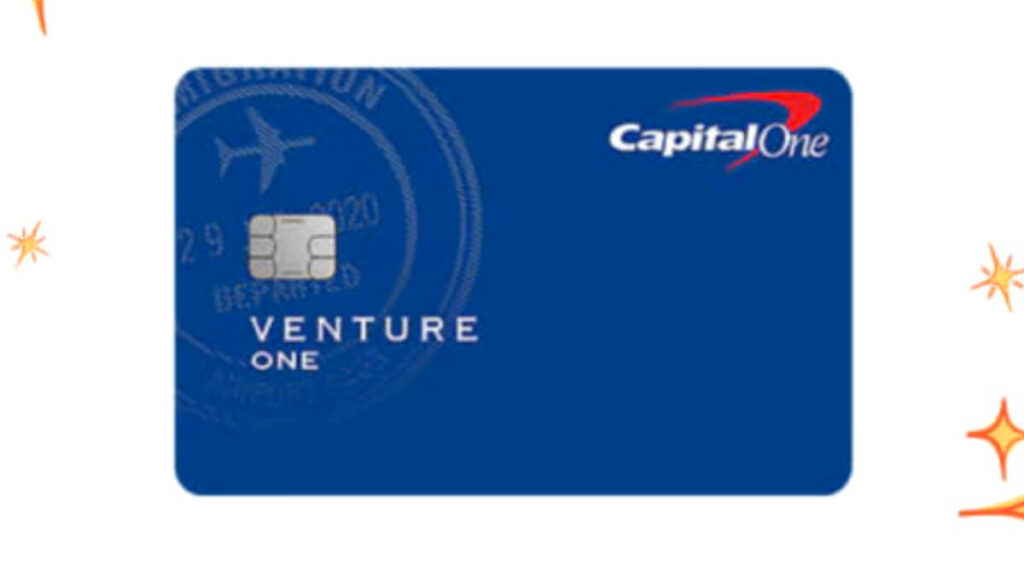
The Capital One VentureOne has a typical rewards program: 1.25X miles for every dollar spent and 5X for any hotel and car rental bookings through the Capital One Travel portal.
The card does not charge foreign transaction fees and in addition, your miles can be used to book travel or be transferred to partners.
This card also comes with common features such as travel accident insurance, and warranty on purchase get an extra year; makes this card ideal for students who seek both reward and blanket for their traveling needs.
4. Discover it Student chrome Card
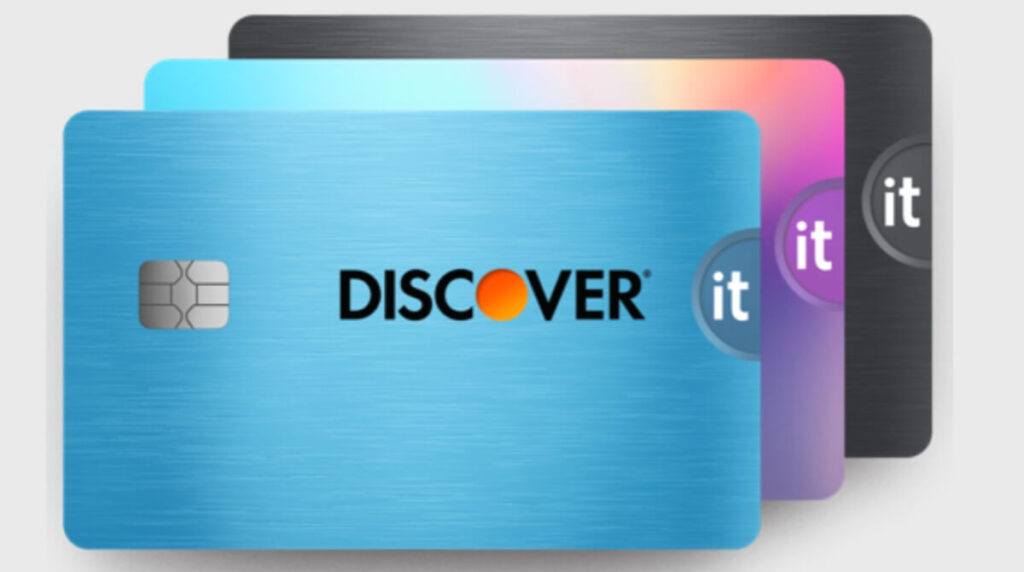
The Discover it Student chrome Card is ideal for college students especially those who are applying for credit for the first time and desire to be rewarded.
The cash- back rates for this card are 2%, for the first $1000 spending amount for combined spending on gas and at restaurants, and 1% for the rest of the spending amount.
One feature that is worthy of attention is the Cashback Match, which means that Discover will match all the cash back you’ve earned by the end of the first year, essentially meaning a twofold cash back.
For students who wish to travel, the Discover it Student chrome Card does not attract an annual fee and foreign transaction fees. Even though Discover is not as well accepted.
as Visa or Mastercard around the globe, the card contains various travel facilities.
It comprises of features that are Social Security number alerts for example it is very helpful when traveling and suspecting an identity theft.
Also, the card comes with reasonable and protective repayment terms, and the customer is entitled to free access to FICO credit score,
making the card a worthy companion for students out to positivity build their credit profiles while earning the rewards.
5. Deserve EDU Mastercard for Student
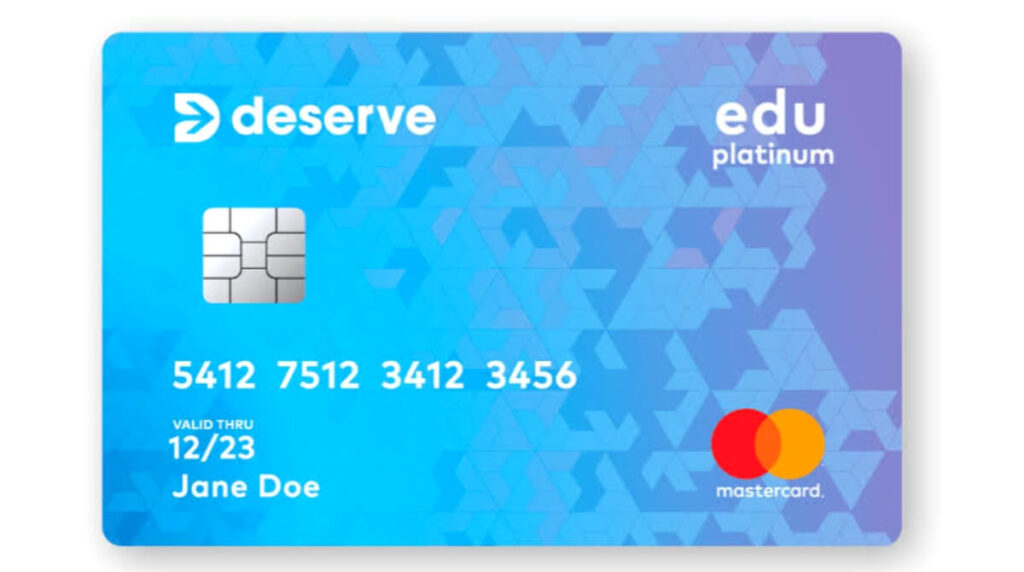
The Deserve EDU Mastercard is ideal for the International students studying in the USA as the card application doesn’t require SSN, and does not demand an impressive credit history.
It doesn’t need the presence of a co-signer who has to reside in the United States, and therefore it is perfect for international students.
This card features 1% cashback on all purchases with no annual or foreign transaction fees, so students traveling between different countries and the United States will benefit from this card.
Another benefit of the Deserve® EDU Mastercard
free Amazon Prime Student Trial, in addition to free shipping, access to Prime videos and many others. For students who shop online often then this particular privilege alone can save hundreds of dollars.
It also offers cell phone insurance if the credit card bill is used to pay for the phone bill allowing students to be on the move with their technological companion in case something happens.
6. Lands’ End, Inc., William Hill Organic Skincare & Spa, Journey Student Rewards from Capital One
The Journey Student Rewards Card is a product specifically developed by Capital One for students who are learning how to manage their credit and build it at the same time.
It offers a straightforward rewards structure: Ala no less than 1% cash back on all transactions and could be as much as 1.25 % on the purchase for each month’s bill paid in full.
Such a feature guards the credit card usage and at the same time enables the students to learn proper way of using the credit cards.
No annual fee and no foreign transaction fees will be the benefit, and it is helpful for students who travel internationally.
However, the Journey® Student Rewards card offers both travel accident insurance and extended warranty protection for the additional security when spending or traveling.
With Capital One being accepted globally students can have faith in using their card as they move around the world.
7. Amex Green card
Not a student card per se, though it comes without an annual fee for students, the American Express Green Card is another great choice for the student who does a lot of travel and desires first-class travel perks.
The card offers 3x points for travel, transit, and dining; these bonus points will readily suit students who must spend most of their money on transport and food.
Redemptions are possible via the Membership Rewards Program of American Express which offers diverse options in travel including flights, flights-booking, hotel bookings and also airline and hotel specific transfer.
Travel concierge services benefits of American Express® Green Card are one of the best within the credit card industry. Privileges or benefits that the customers get to enjoy include;
airport lounge access, Baggage insurance, Trip delay compensation. Of course, there is one negative – the card has an annual fee of $150; however,
given that the card is developed for students and young people, such fee is more suitable for active travelers and those who would use the offered services in full.
But as far as overseas territories are concerned, it is not as popular as the latter is, say MasterCard or Visa with the American Express.
It is may be very good for the students travelling in some parts of the world especially in Americans and Europeans for instance;
but for the students who intend to travel to some parts of the world where American express cards are not very common then it is a bad thing.
How to Choose the Right Credit Card for You: An Expanded Guide
Selecting the right student travel credit card depends with the following factors; how often one travels,
how they spend their money, and their credit record. Here are some critical considerations when deciding which card is the right fit for your needs:
1. Assess Your Travel Habits
Are you a business traveler, or do you travel rather rarely, for example once or twice a year. Select a card which gives more points in travel spending and the best travel rewards card.
will be the one that does not impose forex fees in case you are an international traveler or a student going overseas.
However, if used sparingly, a card that offers cash back on other spending will most likely be beneficial since it would earn points everywhere but traveling.
2. Evaluate Rewards Programs
Rewards come in form of cash back, points, and miles and are offered by one card to another. This is especially useful if you regularly spend on flights and accommodation,
since the rewards you’ll earn with this type of travel rewards credit card with be bolstered when making these purchases. While they definitely come in handy when planning a trip,
having the ability to save up for a special travel, or any other purchase one desires, makes a card that gives cash back on any purchase more desirable
In addition to that, there are special types of points that are granted exclusively for traveling and include such benefits as free check-in of the baggage,
a possibility of using the lounging zone in airports, insurance, and many others. These bonuses are rather crucial for business people who often fly but might be less important to students who rarely travel by air.
3. Understand the fees as well as the interest rates
Most of the travel rewards cards have been known to charge lower or no fees, annual or foreign transaction fees and this is convenient for the students.
However, certain cards such as those with mainly traveling rewards do tend to attract certain fees in a year. Any time you decide to apply for a card,
it is advisable that you take some time and understand the fees Charged by the card issuer plus whether the benefits associated with the Card outweigh the Cost.
Furthermore, care should be taken with regard to the kind of interest that is charged on borrowings. Some student credit cards have a 0% APR for a certain number of months after opening an account,
but if a balance is left after this time interest rates are high. It is recommended that students try to clear balances on their reports in full every month in order to remain indebted and uncharged for interest.
4. Your Credit History
If you are young, a student, or if you do not use credit often, you do not meet the requirement of the best travel rewards cards.
In this case, a suitable credit card type is student credit card which is re eacted to individuals with low credit limit.
Some of these cards come with comparatively low credit limits and even fewer benefits but they afford cardholders the chance of establishing a positive credit record.
So, as you maintain such credit habits as paying your balance on time, at some point your score will be good enough to get you better travel cards with more rewarding programs.
How Student Travel Credit Cards Work and How to Acquire One
1. Gather Required Documents
When applying for a student credit card, you’ll need to provide some essential documents and information, including:
– Proof of income: Some credit card companies may ask to prove that you have income, though it could be minimum wage job or scholarships or parental support.
– Social Security number: International students have to pay more that includes payment through bank drafts or through wire transfer and students based in United States will be required to disclose their Social Security number while completing the application form.
In case, the applicant is an international student he may have to come with some other document such as passport or visa.
– Proof of enrollment: And, there instead are some student credit cards which may accept the applicant College or University ID as proof that the applicant is a student of an accredited college or university.
– Bank account information: Moreover, a checking or a saving account would be helpful in case you have one because it increases the change of getting an approval.
2. Choose the Right Card
The recommendations on how to apply for credit cards can be summed up as follows, you should first choose the right credit card,
which can be done by comparing each credit card with all the others to find the perfect match for your traveling plans and your budget.
You should also look at the motivation offers, costs, and annual percentage rates and other Internet credit card offers that can help you get the best choice.
3. Fill Out the Application
After deciding on a card, you take your application online at the credit card company’s website usually. The enrolment process typically only takes a few minutes and you’ll be asked to supply the documents listed above.
4. Increase your likelihood of having your request approved
If you’re applying for your first credit card and have limited credit history, there are a few things you can do to improve your chances of approval:
– Build a good credit history: If you have established yourself with a secured credit card, or if a student loan was taken in your case, make certain you are not missing any payments and your credit utilization ratio is appropriate.
– Get a co-signer: Some issuers, for instance, permit students to include a co-signer (such as a parent) when making an application, which will enhance the probability of being approved, and also enhance the limit offered.
– Start with a student card: This is especially the case if you are a beginner in credit, you can easily get approved for a student credit card than a regular card travel rewards. As mentioned, you can upgrade yourself to the cards that have greater travel assistance as and when your credit rating increases.
How to get the most out of your student travel credit card
Now that you know how to get a student travel credit card, you need to know how to go all out in using it. Here are some strategies for maximizing your rewards and using your card responsibly:
1. Take Your Card and Use it for All Your Regular Shopping Needs
To build up the rewards as fast as possible, apply your student travel credit card in any purchases you make such as food, eating out and fare. As long as you don’t let the balance hang over to the following month, do it to avail the rewards and coupons without having to worry about accumulating interest charges.
2. Make an effort to maximize on sign-up bonuses
Credit cards issued for traveling have impressive sign-up bonus points if the requisite spending is achieved in the initial months. It may take time and careful planning to make purchases which will lead you to this spending level, but once you get here, they bonus points are yours.
or travels that can be accomplished in that distance of either kilometers or miles. But avoid making purchases with card balances that you are unable to pay for subsequently to avoid getting a debt in the process of getting the rewards.
3. Travel via credit card travel portal or other travel agency Superview
Some student travel credit cards even allow you to earn bonus points or miles when you use the card’s own official travel booking service. For instance, the Chase Sapphire Preferred cards.
give bonus points for the flights and the hotels booked through the Chase Ultimate Rewards portal. You should also note that your card comes with a travel portal that you can use to earn even more rewards or even get better deals.
4. Always Use the Points or the Miles in an Appropriate Way
Holding or points and miles are not at par in terms of redemption. Some credit card rewards have the highest value when they are spent on travel when they are earned via the card’s
designated platform or when they are transferred to air or hotel partners. For instance, points that Chase Ultimate Rewards earn doubles their value when used to book travel through.
the Chase Ultimate Rewards portal. There are many possible ways to redeem points, so use the internet to find out which one may be the most valuable depending on the card.
Moreover, some of the cards enable you to convert your points to other airline or hotel rewards programs, in which case, you may get better value for your points.
For instance, using points for getting flights in a frequent flyer program can give more useful flights rather than using cash back or statement credits.
5. The last is to pay the balance in full every period / Make the full payment for balance each month
Some of the key guidelines when it comes to the use of any credit card include the following The first and key rule is that one should ensure to clear his or her balance in full by the end of the month.
Charging your balance from month to month attracts an interest charge which erases any reward you stand to gain.
You’re able to avoid interest fees if you did not use the card to make purchases that you cannot afford to repay in full but also maintaining.
a positive credit report which shall be used in the future when applying for sizable loans or higher caliber of credit cards.
6. Make Automated Payment Linked To Account and other notices.
As for payments it is possible to have an automatic payment plan or just receive a notification on the upcoming due date. Some student travel credit cards also enable
you to make payments automatically via the issuer’s website or an app. You can also select a spending limit that triggers a message when one is close to the limit,
or when a payment is due. These features can assist you in timely payment regularization which can be so helpful for credit score management.
7. People must be aware that they can Use Your Card Abroad with No Foreign Transaction Fees
If your credit, debit, or otherwise doesn’t have the foreign transaction fees, it’s best to use those when you’re traveling internationally.
Payment of transaction costs in foreign currency costs between 2% and 3% of the purchase cost and cannot be considered a bargaining point due to the constant changes in exchange rates.
If you’re a student and not comfortable walking around with the regular travel cards, the student travel card, which erases these fees, enables you to make your purchases abroad without burning deep holes in your pockets.
However, you should make sure that the card is approved in the country or countries you intend to use it in. For instance,
Credit cards such as Visa and Master card are ever present while those of American Express and Discover may not be so easily found in certain locational ares.
Though many banks now waive fees and allow cards from the US to function internationally, it’s better to confirm the card’s compatibility before travelling, or else it’s wise to come with a backup payment option.
8. Check Your Credit Score At Least Once a Month
The majority of student travel credit cards allow and come with the added feature the ability to track your credit score for free:
an excellent method of tracking your financial improvement. There are a few things you should know: Credit score checking is a good way to understand
what is going on with your credit Checking your credit record frequently will allow you to notice any problems, for example,
missed payments or other problems credited to you. As with more extensive traveling, if your credit rating goes up over the time, then,
you might also be eligible for much better credit cards with even better travel perks.
9. It’s important that you should keenly factor the following as they will land you into frequent mistakes:
As already mentioned student travel credit cards have a number of advantages, nevertheless there are a number of drawbacks as well. Here are some common mistakes students should be aware of when using their credit cards:
1. Promotion 9: Overspending to Earn Rewards
The flashy option to overspend just so that you can qualify for a bonus or even get a better rewards tier. However, if you spend more than your cash back rewards.
earned you would spend more than you earn and end up paying high interest charges. Always maintain a spending plan and avoid charging on your credit card what you cannot to pay in full.
2. Carrying a Balance
When one charges a certain amount on the credit card, and fails to pay the total amount, and only pays a balance in order to continue using the card, he or she is charged interest fees,
and these vary with different student cards. To dodge this, always ensure that you clear your balance in full before the due date. In case you cannot clear the balance, it is good to refrain from using your credit card until you clear your balance.
3. Missing Payments
Usually if you fail to pay your credit card bill on time you are asked to pay a fine, you end up paying a higher interest charges and your credit rating is pulled down.
In order not to miss the payment date you can make changes to have payment reminders or have a form of auto pay.
If you are very sure that specific payment deadlines cannot be honored it will be advisable to consult your credit card provider as early as possible.
4. Ignoring Fees
although many student travel credit cards have no annual fee, some may charge other fees that are to be associated with some actions like balance transfers or cash advances. In virtually all cases,
you should always take time to read the terms of your card agreement so that you can have an idea of the fees charged on your card.
That is something that one would like to avoid and knowing this information can help you do just that.
5. Reward expirations refer to time-bound statements that are meant to motivate actions but are not well understood.
It is often a requirement of some travel rewards or point that they can only be redeemed within a particular period, usually in case they have not been used at all in some time.
Being aware of the expiration date for your card, reward programs make sure you don’t lose valuable points or miles.
There are programs where your expiration date is reset each time you accrue new points, whereas others are much more stringent on this policy and so it pays to be aware.
6. Applying for Too Many Cards
Applying for many credit cards with an intention to benefit from different reward schemes harm your credit score.
Every time you fill an application for credit card, this issue leads to a hard inquiry on your credit report and if there are many inquiries within a short period,
the_score reduces. Moreover, having more than one card might be challenging especially for students who are still unfamiliar with credit cards thus they may easily forfeit payment or spend beyond their restrict limit.
Extra Benefits Accompanying Travel Insurance and Student Credit Cards
It is important to note, however, that many student travel credit cards also come with the added bonuses that can actually be useful, cost wise, and helpful in case an emergency arises while on travel. Here’s a closer look at some of the most common perks:
1. Travel Insurance
Some of advantages that student travel credit card was described as follows; insurance on his travel such for example as trip
cancellation/interruption insurance, baggage delay insurance, and travel accident insurance.
These policies will cover you non refundable costs of the trip in case your trip is cancelled for a reason that is within the policy or when you travel and your checked in luggage fails to turn up.
2. Reward expirations refer to time-bound statements that are meant to motivate actions but are not well understood.
Some of the rewards or points associated with travelling have certain expiration dates depending on the time that the points have elapsed without being used.
Being aware of the expiration date for your card, reward programs make sure you don’t lose valuable points or miles.
There are programs where your expiration date is reset each time you accrue new points, whereas others are much more stringent on this policy and so it pays to be aware.
3. Applying for Too Many Cards
Applying for many credit cards with an intention to benefit from different reward schemes harm your credit score. Every time you fill an application for credit card,
this issue leads to a hard inquiry on your credit report and if there are many inquiries within a short period, the_score reduces.
Moreover, having more than one card might be challenging especially for students who are still unfamiliar with credit cards thus they may easily forfeit payment or spend beyond their restrict limit.